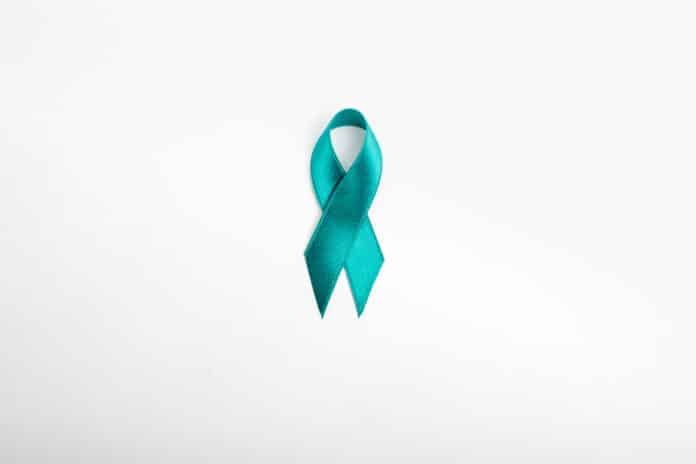Stress and anxiety are common experiences in our daily lives. They are natural responses to challenging situations, but if left unchecked, they can negatively impact our physical and mental well-being.

Stress and anxiety are natural responses to challenging or threatening situations, and in small doses, they can be beneficial by helping us to stay alert, focused, and motivated.
However, when stress and anxiety become chronic or overwhelming, they can have negative effects on our physical and mental health.
Effects of Stress and Anxiety
Here are some of the effects of chronic stress and anxiety:
- Physical health problems: Chronic stress and anxiety can lead to physical health problems such as high blood pressure, heart disease, digestive problems, headaches, and muscle tension. Stress hormones can exacerbate these physical symptoms such as cortisol, which can cause inflammation and other harmful effects on the body.
- Mental health problems: Chronic stress and anxiety can also have negative effects on our mental health. They can lead to feelings of depression, irritability, and mood swings, as well as difficulty concentrating and deciding. Chronic stress and anxiety have also been linked to a higher risk of developing mental health disorders such as anxiety disorders, depression, and post-traumatic stress disorder (PTSD).
- Sleep problems: Chronic stress and anxiety can make it difficult to fall asleep or stay asleep, leading to insomnia or other sleep disorders. This lack of sleep can further exacerbate stress and anxiety, leading to a vicious cycle of poor sleep and increased stress and anxiety.
- Impaired immune function: Chronic stress and anxiety can weaken the immune system, making it more difficult for the body to fight off infections and diseases. This can lead to a higher risk of developing chronic illnesses such as autoimmune diseases, diabetes, and cancer.
- Social problems: Chronic stress and anxiety can also impact our social relationships. It can lead to social withdrawal, irritability, and conflict with others. It can also make it difficult to form and maintain healthy relationships, leading to feelings of loneliness and isolation.
Ways to Reduce Stress and Anxiety

Fortunately, there are many effective ways to reduce stress and anxiety. In this article, we will explore seven strategies that can help you manage your stress and anxiety levels.
I. Identify the Source of Your Stress and Anxiety
The first step in reducing stress and anxiety is to identify the source. There are many types of stress and anxiety, including work-related stress, relationship problems, financial worries, and health concerns.
READ ALSO:
List of Easy Recipes for Picky Eaters
Step-by-Step Guide to Potty Training Your Toddler
Recognizing the symptoms of stress and anxiety is crucial in identifying their source. Common symptoms include:
- Physical symptoms such as headaches, muscle tension, and fatigue
- Emotional symptoms such as irritability, mood swings, and depression
- Behavioral symptoms such as overeating, substance abuse, and social withdrawal
Once you have identified the symptoms, it is easier to pinpoint the source of your stress and anxiety. Some strategies to help you identify the source include journaling, talking to a trusted friend or family member, and seeking professional help.
II. Practice Mindfulness and Meditation
Mindfulness and meditation are powerful tools for reducing stress and anxiety. Mindfulness is the practice of paying attention to the present moment without judgment, while meditation is the practice of focusing your attention on a specific object or thought.
Both practices have been shown to reduce stress and anxiety and improve overall well-being.
There are many ways to practice mindfulness and meditation. One popular technique is the body scan, which involves paying attention to the sensations in your body from head to toe.
Another technique is mindful breathing, which involves focusing on your breath as it enters and leaves your body. Meditation can also be practiced with the help of guided meditations or by attending a meditation class.
III. Engage in Regular Exercise
Exercise is another powerful tool for reducing stress and anxiety. Physical activity releases endorphins, which are natural chemicals in the body that reduce pain and increase feelings of happiness. Exercise also helps to reduce muscle tension and improve sleep, both of which can alleviate stress and anxiety.
There are many types of exercise that are effective in reducing stress and anxiety, including yoga, walking, running, and swimming. The key is to find an activity that you enjoy and make it a regular part of your routine. Aim for at least 30 minutes of moderate-intensity exercise five days a week.
IV. Connect with Others
Social support matters in reducing stress and anxiety. Connecting with others can provide a sense of belonging and help you feel less alone in your struggles. There are many ways to connect with others, including:
- Joining a support group
- Volunteering
- Participating in a hobby or interest group
- Attending social events
If you are having trouble connecting with others, consider seeking the help of a therapist. A therapist can provide a safe and supportive environment to explore your feelings and develop strategies to improve your social connections.
V. Take Time for Yourself
Self-care is essential for reducing stress and anxiety. Taking time for yourself can help you recharge your batteries and feel more balanced. There are many strategies for self-care, including:
- Practicing relaxation techniques such as deep breathing or taking a warm bath
- Engaging in creative activities such as painting or writing
- Engaging in a hobby or interest
- Spending time in nature
The key is to find activities that you enjoy and make them a regular part of your routine.
VI. Get Enough Sleep
Sleep is an essential component of reducing stress and anxiety. Lack of sleep can increase feelings of stress and anxiety and make it more difficult to cope with challenging situations. The recommended amount of sleep for adults is seven to nine hours per night.
There are many strategies for improving the quality of your sleep. These include:
- Establishing a regular sleep routine by going to bed and waking up at the same time every day
- Creating a sleep-conducive environment by minimizing noise and light and maintaining a comfortable temperature
- Avoiding stimulating activities such as using electronics before bedtime
- Practicing relaxation techniques such as deep breathing or meditation before bedtime
If you are having trouble sleeping, it may be helpful to seek the help of a healthcare professional.
VII. Make Healthy Choices
Making healthy choices matters in reducing stress and anxiety. A healthy lifestyle can improve your physical and mental well-being and help you cope with challenging situations. Some strategies for making healthy choices include:
- Eating a balanced and nutritious diet that includes fruits, vegetables, whole grains, and lean proteins
- Avoiding or limiting caffeine and alcohol, both of which can increase feelings of anxiety
- Quitting smoking, which can increase feelings of stress and anxiety
- Maintaining a healthy weight through regular exercise and a balanced diet
Stress and anxiety are common experiences in our daily lives, but they don’t have to take over. By identifying the source of your stress and anxiety and implementing these seven strategies, you can reduce your stress and anxiety levels and improve your overall well-being.
Remember to be patient and kind to yourself as you navigate these strategies, and seek the help of a healthcare professional if you need additional support.





